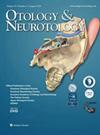胃泌素通过Notch信号通路对庆大霉素诱发的前庭损伤的保护作用
IF 2
3区 医学
Q3 CLINICAL NEUROLOGY
引用次数: 0
摘要
目的庆大霉素是临床上常用的广谱抗生素。然而,该药物会产生耳毒性副作用,导致平衡功能紊乱。本研究探讨了天麻中的一种主要化合物--天麻素对庆大霉素诱发的前庭功能障碍的影响及其内在机制。通过一系列测试评估庆大霉素引起的前庭功能障碍的程度,这些测试包括游泳测试、接触性向右转反射测试和空气向右转反射。通过免疫荧光检测监测了前庭毛细胞的变化,并使用 TUNEL 染色观察了细胞凋亡。结果庆大霉素治疗导致小鼠前庭功能和耳石器官毛细胞明显受损。然而,用胃泌素预处理可明显缓解这些损伤。此外,庆大霉素激活了子宫内的Notch信号通路,导致细胞凋亡相关蛋白的表达水平明显升高。总之,这些研究结果强调了天麻素在通过调节 Notch 信号通路防止庆大霉素诱导的前庭功能障碍方面的关键作用。这项研究表明,天麻素有可能成为预防前庭损伤的治疗药物。本文章由计算机程序翻译,如有差异,请以英文原文为准。
Protective Effects of Gastrodin Against Gentamicin-Induced Vestibular Damage by the Notch Signaling Pathway.
PURPOSE
Gentamicin is a broad-spectrum antibiotic commonly used in clinical practice. However, the drug causes side effects of ototoxicity, leading to disruption in balance functionality. This study investigated the effect of gastrodin, a prominent compound present in Gastrodia, and the underlying mechanism on the development of gentamicin-induced vestibular dysfunction.
METHODS
Wild-type C57BL/6 mice were randomly assigned to three groups: control, gentamicin, and gentamicin + gastrodin groups. The extent of gentamicin-induced vestibular impairment was assessed through a series of tests including the swimming test, contact righting reflex test, and air-righting reflex. Alterations in vestibular hair cells were monitored through immunofluorescence assay, and cellular apoptosis was observed using TUNEL staining. The mRNA and protein expression of Notch1, Jagged1, and Hes1 was quantified through qRT-PCR, immunofluorescence, and western blot analyses.
RESULTS
Gentamicin treatment led to pronounced deficits in vestibular function and otolith organ hair cells in mice. Nevertheless, pretreatment with gastrodin significantly alleviated these impairments. Additionally, the Notch signaling pathway was activated by gentamicin in the utricle, contributing to a notable increase in the expression levels of apoptosis-associated proteins. By contrast, gastrodin treatment effectively suppressed the Notch signaling pathway, thereby mitigating the occurrence of apoptosis.
CONCLUSION
Collectively, these findings underscore the crucial role of gastrodin in safeguarding against gentamicin-induced vestibular dysfunction through the modulation of the Notch signaling pathway. This study suggests the potential of gastrodin as a promising therapeutic agent for preventing vestibular injuries.
求助全文
通过发布文献求助,成功后即可免费获取论文全文。
去求助
来源期刊

Otology & Neurotology
医学-耳鼻喉科学
CiteScore
3.80
自引率
14.30%
发文量
509
审稿时长
3-6 weeks
期刊介绍:
Otology & Neurotology publishes original articles relating to both clinical and basic science aspects of otology, neurotology, and cranial base surgery. As the foremost journal in its field, it has become the favored place for publishing the best of new science relating to the human ear and its diseases. The broadly international character of its contributing authors, editorial board, and readership provides the Journal its decidedly global perspective.
 求助内容:
求助内容: 应助结果提醒方式:
应助结果提醒方式:


